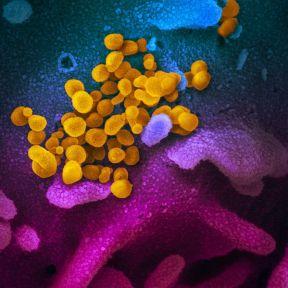KEY POINTS-
- A new study reports that half of adolescents suffered psychosis during the pandemic.
- Those with the virus had a higher risk, and reports show that adults were also affected.
- This is because covid-19 causes inflammation that then causes psychopathological symptoms.
A new study published in the journal Schizophrenia Research in 2023 reported that 51.4 percent of adolescents had at least one psychotic experience during the SARS-Cov-2/covid-19 pandemic.[1] The risk of having a psychotic experience was higher among adolescents who have had a mental disorder, those with a chronic illness, and adolescents who were infected with covid-19. Adolescents who read or watched more media coverage about the pandemic were also more likely to have a psychotic experience.[1] This extended previous evidence of adults who had new psychotic experiences during the pandemic, in a systematic review of case reports published in the Journal of Psychiatry Research.[2]
All the patients in the reports covered by the review had contracted covid-19.[2] The review found that 69 percent of them had never had a mental disorder before they had the psychotic experience, and about three-quarters of the patients had mild covid-19 symptoms. This suggests that covid-induced psychosis can occur even if someone did not suffer moderate to severe symptoms of covid.[2]
Many patients in the case reports suffered hallucinations or delusions, but their brain scans were normal.[2] Some patients suffered tactile hallucinations such as believing that stuff was crawling out of their mouth, or something was crawling on them, possibly because the unknown virus prompted feelings of being invaded. Another patient believed that a metallic object was installed in his body, gurgled with disinfectant, and smeared marmalade around his eyes, which might have been prompted by concerns about being infected and eradicating that infection. Quite a few patients had religious delusions, such as hallucinating about someone speaking to them because suffering a potentially fatal illness prompted worries about death and the life beyond.
Delusions and Hallucinations
Other patients had delusions such as thinking that someone was poisoning their food, chasing them, or trying to kill them,[2] potentially because covid-19 raised concerns about being attacked by the infection. During the pandemic, it was common to hear rumours (true or false) of people who deliberately infected others by coughing in their faces or spitting on door handles, therefore a sense of fear existed in society that might have contributed to the onset of psychosis among some. As well, because the virus was new and its consequences unknown, it is likely that people who suffered delusions or hallucinations after being infected with covid-19 were dealing with unconscious worries, fears, and anxieties about whether they would survive and what was happening to their bodies.
Although many of the cases had normal brain scans,[2] another review published in the journal Neuroscience and Biobehavioral Reviews concluded that many respiratory illnesses cause inflammation which then contributes to psychotic experiences [3]. The authors describe coronaviruses as “neuro-invasive” and this is consistent with growing evidence that covid-19 causes a range of complex and varied long-term symptoms from organ damage to brain fog and fatigue. Their conclusions echo those of other authors who noticed the impact of covid-19 on psychosis earlier in the pandemic.[4] The review reported that the impact of covid-19 on psychopathology is not unusual and that other respiratory illnesses have had a similar impact; therefore concluding that understanding the ”why” requires understanding the impact of inflammation on mental health. The review indicated that the risks are greater among children and young people because they are still developing, and that might explain why adolescents who suffered at least one psychotic experience in the 2023 study were more likely to have been infected with covid-19.[1]
The Risk of Psychosis
The new research suggests that contracting covid-19 carries the risk of not just long covid (which is a debilitating condition) but also the risk of psychosis. Although many patients did recover after taking antipsychotic medication,[2] some of them did not recover and, for them, the journey to recovering their mental health will be long, harming their functioning. The evidence suggests that people can suffer new-onset psychosis even if they have no history of a mental illness, potentially because covid-19 causes inflammation which precipitates psychotic experiences. It is therefore prudent for people to continue to wear face masks in crowded places, get fully vaccinated, continue testing themselves, and stay away from others if infected because, still, a lot is unknown about covid-19 and its consequences. The risk of psychosis should prompt people to continue to protect themselves and others.


